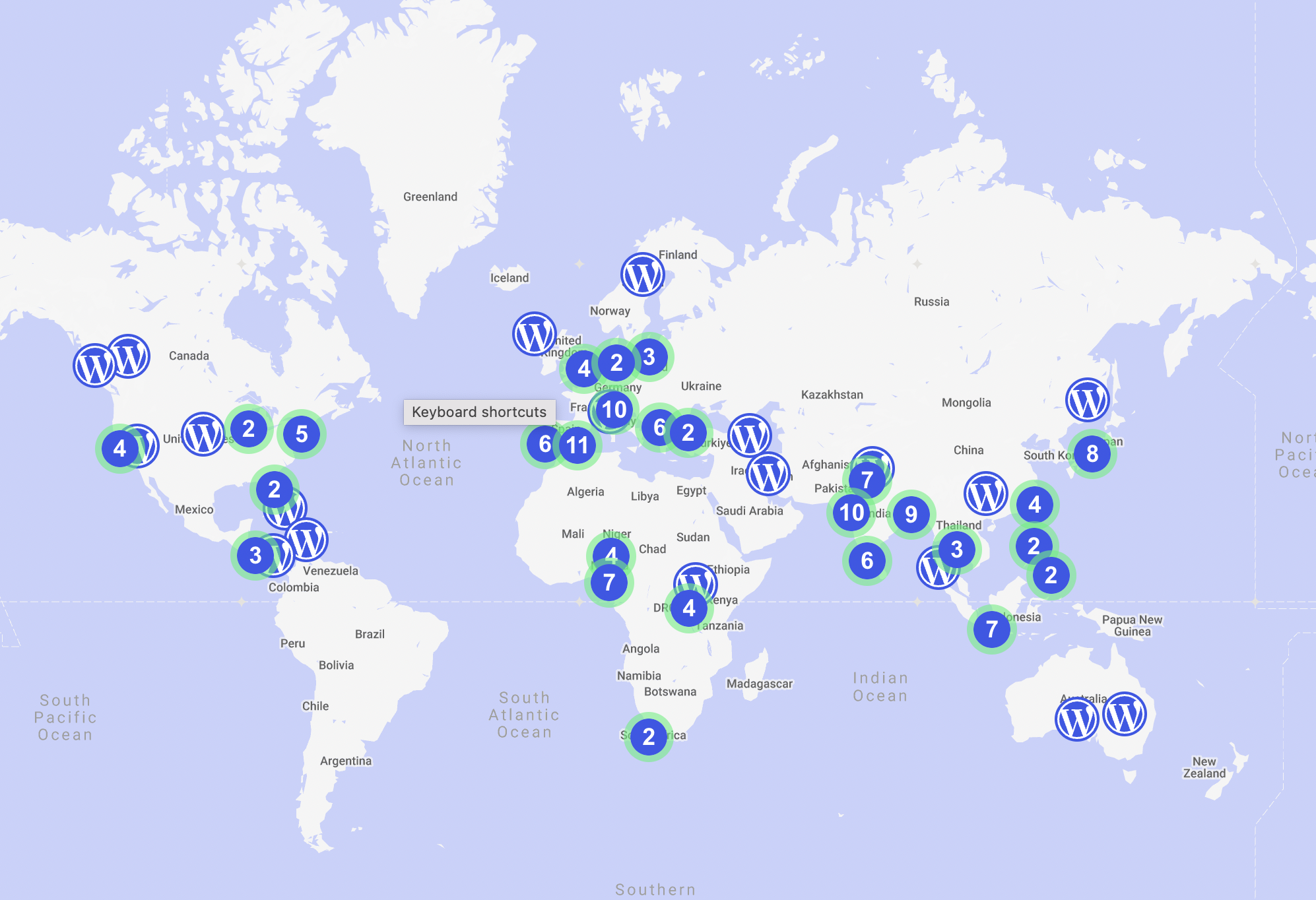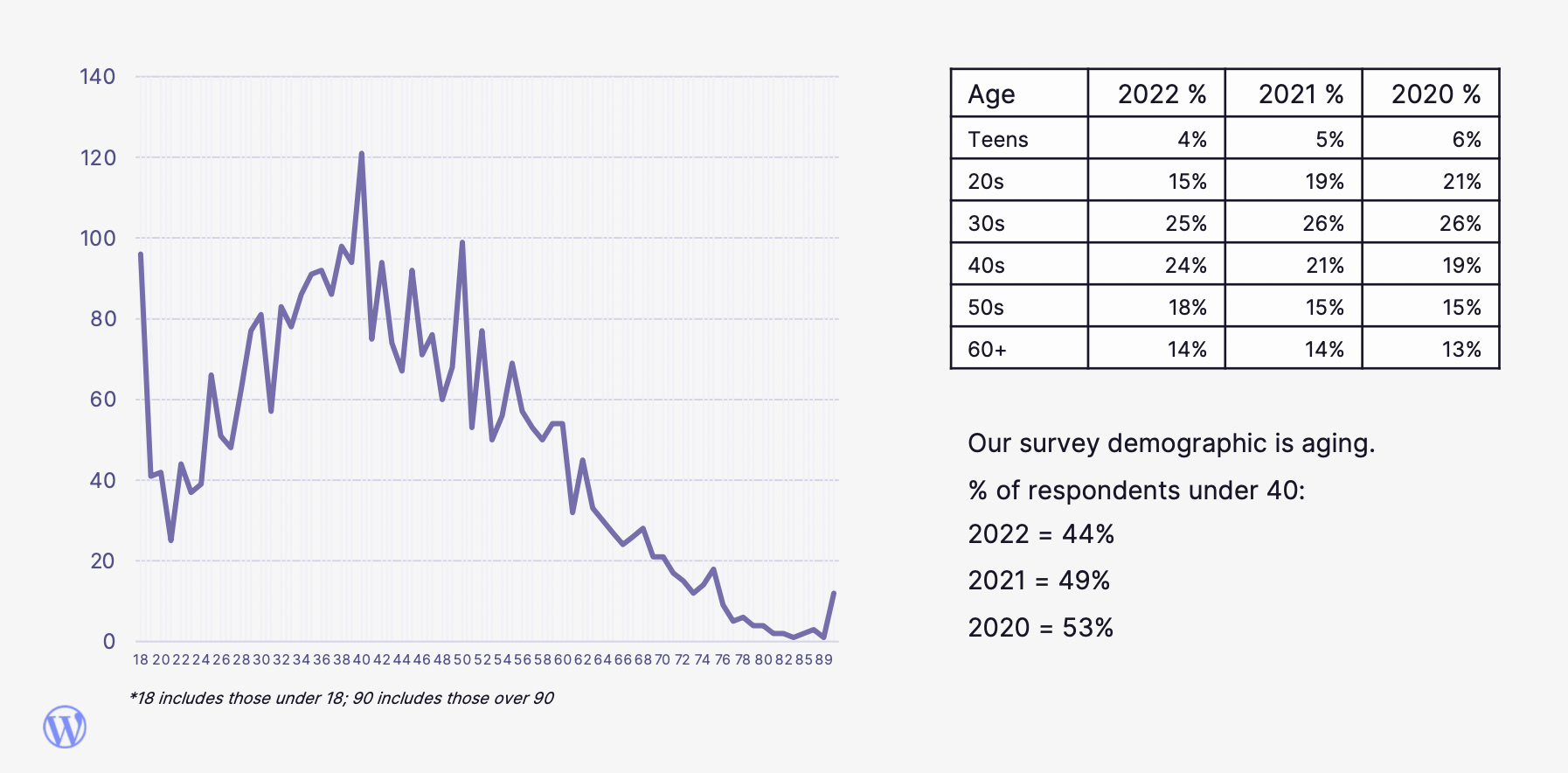WordPress is 20 years old today, an estimable milestone for open source software running on the web. Parties are happening all over the world – in Geneva, Los Angeles, Istanbul, Bangkok, Lahore, Jakarta, Mumbai – in over 150 different locations.

The software has been downloaded more than 2.8 billion times but the most impressive stat is the project’s staggering 112,000 contributors, past and present, who have improved and energized WordPress with their passion, talent, and hard work.
None of the global collaboration we enjoy today would exist without the inspiration and leadership of co-founders Matt Mullenweg and Mike Little. They worked in a distributed way from day one, having never met when they started WordPress. This way of working created the foundation for a global contributor base that now supports 43% of the world’s websites.
WordPress has had a profound impact on the lives of millions of users, giving them a voice on the web and the tools to launch businesses, create jobs, and bring ideas to life. The #WP20 hashtag is replete with stories of how WordPress and its community have given people a place of belonging and launched them into successful endeavors.
Does WordPress have 20 more years in its future? Two of the biggest challenges ahead are capturing the hearts of the next generation of builders and maintainers, and preserving the open web where WordPress has thrived. The project’s 2022 annual survey showed that the respondent demographic is aging. The percentage of respondents under age 40 has decreased every year, as WordPress enters its third decade.

Ensuring that WordPress remains resilient and relevant to future generations has required some courageous leadership decisions, like introducing the block editor, and may bring some significant shifts down the road, as we enter a new era of AI-powered innovation.
Major milestones are are a good time to acknowledge the efforts that made all of this possible. Thank you, dedicated contributors, for lending WordPress a little bit of your fire and a lot of your patience, nurturing, and support. The code under the hood may look very different from the early days in 2003, but WordPress is still that same scrappy, irrepressible force of good on the web that users can count on for years to come.


